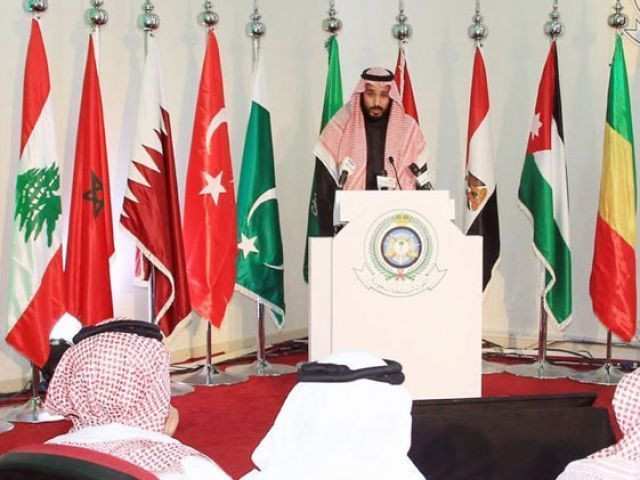A new alliance
Mohammed bin Salman revealed on Monday a military alliance of Muslim countries, which included Pakistan

A handout picture provided by the Saudi Press Agency (SPA) on December 15, 2015, shows Saudi Defence Minister and Deputy Crown Prince Mohammed bin Salman holding a press conference on December 14, 2015. PHOTO: AFP
Historically, Pakistan has only contributed militarily to operations under a UN mandate, and our forces have served long and honourably as UN peacekeepers the world over. This will have informed the decision — we believe the right decision — not to become militarily engaged in the conflict in Yemen, which with hindsight is ever-clearer to have been correct. Terrorism is constantly evolving, and the threat presented by the IS is both imminent in Pakistan and starkly evident elsewhere across the Middle East, the Fertile Crescent and the Maghrib.
A collective response from the Muslim world to that threat is to be welcomed, though the difficulties of putting such an alliance together, given the fractured nature of relations between those states, both included and excluded in alliance-building are very considerable. Pakistan is in the process of re-swinging its foreign policy compass and cannot afford a difficulty with Iran with which a reformed relationship is under construction. We reserve our unequivocal support for this development pending greater detail as to protocols and modalities.
Published in The Express Tribune, December 17th, 2015.
Like Opinion & Editorial on Facebook, follow @ETOpEd on Twitter to receive all updates on all our daily pieces.















COMMENTS
Comments are moderated and generally will be posted if they are on-topic and not abusive.
For more information, please see our Comments FAQ